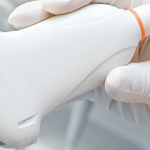The Committee on Education, chaired by Richard Furie, MD, professor of medicine at Hofstra North Shore-LIJ School of Medicine in Hempstead, New York, continues to improve the ACR Annual Meeting, one of the ACR’s survival functions. The most recent meeting in Chicago last November was the largest and best ever. The meeting continues to grow, and I do not like to miss one. The clinical tracks are easier to navigate, although I must say it is getting more difficult to select which session to attend among all the great choices. The recently board-approved SessionSelect, where attendees can view sessions that they missed, will be a much-used option. I wish we could get CME for viewing SessionSelect
The editorial team of The Rheumatologist deserves accolades for nurturing the maturation of the ACR’s newest publication. David Pisetsky, MD, PhD, professor of medicine and immunology at Duke University Medical Center in Durham, N.C, the inaugural editor, guided The Rheumatologist to fill a niche for members offering a smorgasbord of medical reviews, news, commentary, editorials, business practice updates, and general human-interest articles. Where else can you get up-to-the-minute practice management “news I can use”? I read it from cover to cover every month.
Advocacy On Many Fronts
We are a small medical subspecialty, but we now have a much louder voice on Capitol Hill. Through the efforts of RheumPAC, the ACR’s political action committee led by its inaugural chair, Gary Bryant, MD, associate professor of medicine at the University of Minnesota Medical School in Minneapolis, and the Government Affairs Committee, chaired by Timothy Laing, MD, associate professor of medicine at the University of Michigan in Ann Arbor, we have more access to Congressional members and their staff than ever before. Members of Congress now know what a rheumatologist does. The organized yearly trip to the Hill in September has grown to be a successful event. The visits to Congress are a great civics lesson in American politics and I highly recommend that members to go to Washington, D.C., to meet with their representatives and advocate for issues important for rheumatic disease patients and rheumatology. The ACR will pay your way. Gary not only chairs RheumPAC, but is also one of the ACR’s American Medical Association representatives. He does that, sees patients, and runs the department of medicine faculty practice at the University of Minnesota.
The Insurance Subcommittee within the Committee on Rheumatologic Care (CORC) is led with great enthusiasm by Rudy Molina, MD, of Arthritis Associates PA in San Antonio, Texas, now has established working relationships and contacts at many national and regional carriers so that problems with carrier policies, prior authorizations, and coverage issues can be addressed. If you have established contacts with your local carrier, call Rudy if you would like to serve. The carriers will often pay attention to the ACR when they ignore the complaint of a single provider.
It would be prudent for all members to become knowledgeable about these guidelines and measures and begin to implement them in their practices. In the near future, provider reimbursement will be tied to how we score on these quality measures.
Quality of Care
A great change is coming to the practice of rheumatology as “quality of care” occupies center stage. Anticipating the need to establish quality measures and management guidelines before the carriers do, the Quality of Care Committee, currently chaired by Kenneth Saag, MD, MSc, professor of medicine at the University of Alabama at Birmingham, has systematically drafted the guidelines and measures critical to our profession. Most of us understand the ACR had to be proactive to develop these before others less knowledgeable and perhaps not as protective of patient interests drafted them. This has been an extraordinary undertaking, with much more to be done. It would be prudent for all members to become knowledgeable about these guidelines and measures and begin to implement them in their practices. In the near future, provider reimbursement will be tied to how we score on these quality measures. Although there are those that feel this effort only adds more administrative burden without evidence of benefit, I feel that quality of care will significantly improve as a result of these labors.



